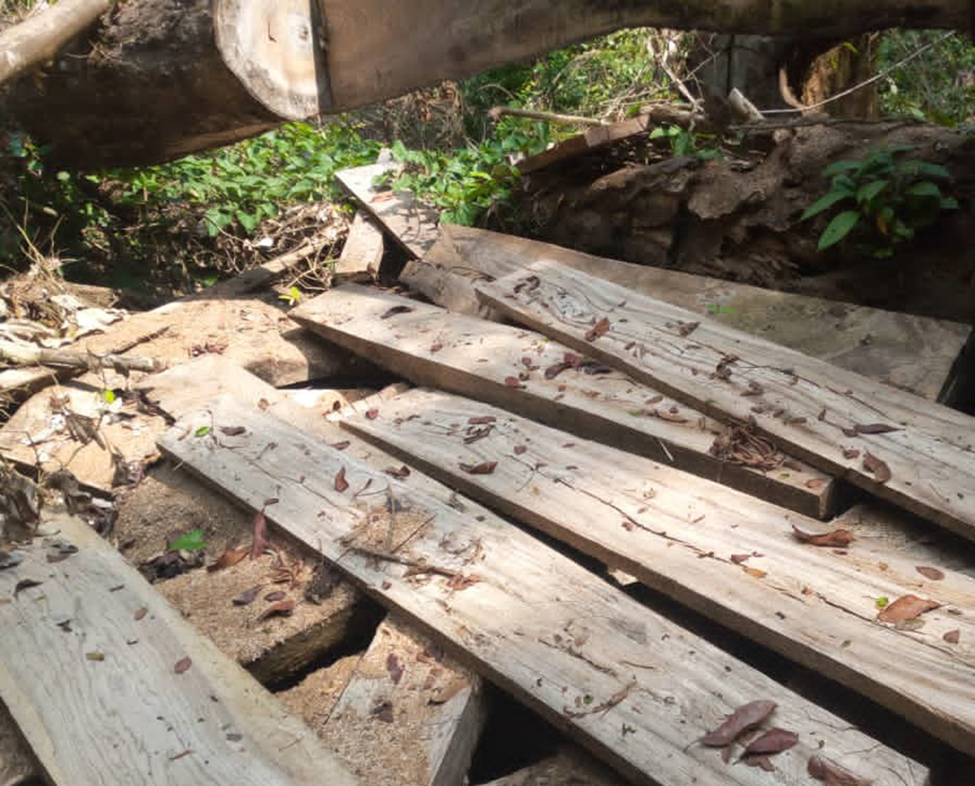The African zebrawood Microberlinia bisulcata is a Critically Endangered species endemic to Cameroon. Demand for its wood is high because of its unique colour, texture and hardness. The species is not listed on the CITES appendices, although indiscriminate logging is a major problem, including a current increase in the Ebo forest, which was previously considered a safe haven for this and other species.

Wood of the Critically Endangered African zebrawood Microberlinia bisulcata logged illegally in Cameroon's Ebo forest.
During August 2020–March 2021 we surveyed the Ebo forest to collect information on the rate of harvesting of this species and on the actors involved in the trade. We estimated that c. 2 t of M. bisulcata are smuggled out of the forest every month. In February 2020 the area was gazetted as a logging concession. Given the current rate of illegal harvesting, we predict that within the next 2 years all seed-bearing individuals will have been logged, pushing the species to the brink of extinction. We identified five groups of actors involved in the trade of this wood: initiators (landowners, or locally influential people), prospectors (local men paid to find and mark trees), harvesters (local men paid to cut the marked trees), transporters (owners of trucks paid to transport the logged wood to the nearby city of Douala) and buyers (local businessmen or foreigners). We learnt that Chinese traders based in Douala pay USD 600/m3 of M. bisulcata wood, the price of which as doubled since 2018. The high price is probably the main reason for the current increase in illegal commercial harvesting. In addition, however, the decision to gazette the Ebo forest as a logging concession has inadvertently encouraged local people to log valuable timber products before they are forbidden to access the forest.
Based on our findings, we make the following recommendations: (1) the Ebo forest should be gazetted as a National Park, (2) the area needs to be reforested urgently with M. bisulcata, (3) alternative livelihood activities need to be implemented for the people living in the vicinity of the Ebo forest, and (4) M. bisulcata needs to be listed on a CITES appendix, prohibiting international trade in its wood.


